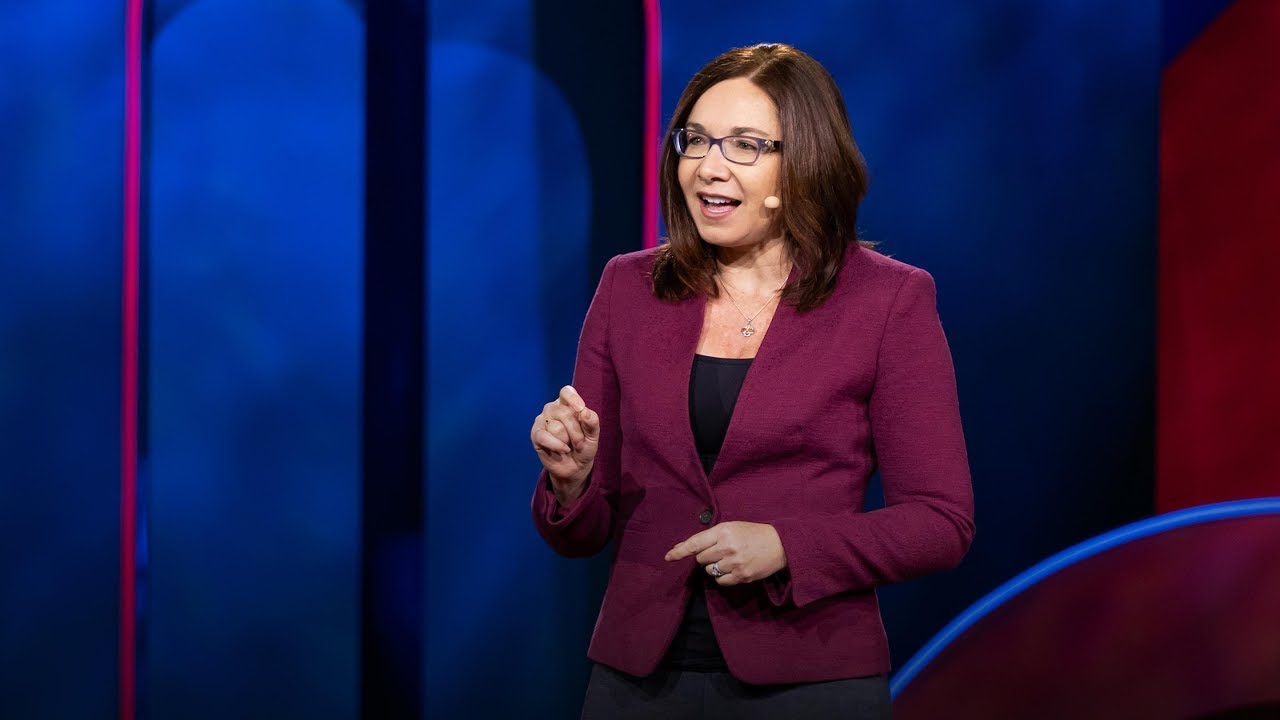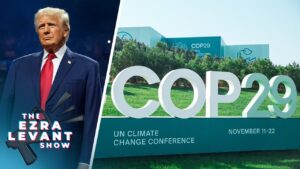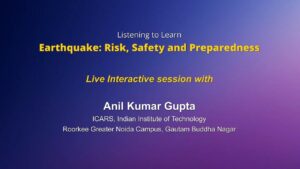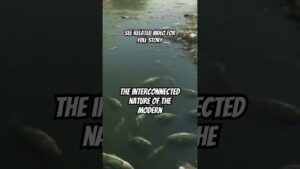
How do you talk to someone who doesn’t believe in climate change? Not by rehashing the same data and facts we’ve been discussing for years, says climate scientist Katharine Hayhoe. In this inspiring, pragmatic talk, Hayhoe shows how the key to having a real discussion is to connect over shared values like family, community and religion — and to prompt people to realize that they already care about a changing climate. “We can’t give in to despair,” she says. “We have to go out and look for the hope we need to inspire us to act — and that hope begins with a conversation, today.”
Check out more TED Talks: http://www.ted.com
The TED Talks channel features the best talks and performances from the TED Conference, where the world’s leading thinkers and doers give the talk of their lives in 18 minutes (or less). Look for talks on Technology, Entertainment and Design — plus science, business, global issues, the arts and more.
Follow TED on Twitter: http://www.twitter.com/TEDTalks
Like TED on Facebook: https://www.facebook.com/TED
Subscribe to our channel: https://www.youtube.com/TED
source







Katharine Hayhoe, why don't you debate Tony Heller? Scared of facts are we?
This is the most naive thing I’ve heard in a while
To me, the thing I think about is waste/resources. For instance, solar and wind require finite resources to produce and maintain. And what happens when they need to be replaced? What waste do they create at the end of their lifecycle? Similarly, we are developing new cars. But what are the impacts of mining to get the resources needed to produce those cars and what are the lifecycles of the cars? We need to produce with a circular lifecycle in mind. We need to change our consciousness. Otherwise we are just switching out products with slightly better versions with the same, wasteful linear thinking. We need to become conscious creators, including procreation. We really need to put all of our energy into changing the current system. That's difficult to do while raising children. 💖🙏🦋
02:24 Dr. Hayhoe's weekly encounter with the pseudoargument "Those climate scientists are just in it for the money" is an absurdly common dismissal amongst the partisan right. However, I think it's a legitimate self-analysis of the climate movement to ask how and why we throw money at problems.
How do we get billionaire investors to stop obstructing the levers of their destructive profitability? Prioritize pathways of green profitability, and talk about opportunities, opportunities, opportunities.
Climate solutions are about patenting new industries, right?
Can the climate movement leverage savvy capitalism to end fossil fuels and secure a renewable energy future? Maybe. But when that's the platform, the climate movement is guilty of the biggest silver bullet sin of all — climate change has to be firmly about ending CO2 from combustion. This continues to legitimize the false axiom about methane impacts, partially to balance the "need" for further natural gas (ie. methane) development as "bridge fuels" while the renewable grid is built, but skew the accounting from agricultural solutions.
Amongst those of us who are willing to scrutinize ag emissions, we see many headlines envisioning a future of cellular agriculture, aka clean meat. Is this a vote that the prevailing meat lust is immutable? Certainly. Does the footprint of a sterile meat-growing factory require ignoring? You bet. Is a patentable, essentially industrial solution attractive to investors? So much so that the attention given to the rise of the plant-based protein industry is a distant second as an investment in a climate-friendly future.
Awareness campaigns that animal protein isn't so very unique or beneficial to a calorie- and carbon-drenched society is what we need most — but where is the ROI in that?
Dr. Hayhoe is right — talking is of utmost importance, but the "language" used is also critical. Since becoming the Chief Scientist of the Nature Conservancy, I expect that Dr. Hayhoe has more elbow room to share more aggressive thoughts than addressing the <4% solution of eating local, or less abstract personal objectives than "eat lower on the food chain" as offered in this 4 year-old video. More important than a switch that cuts household currency to all but the fridge is the contents of that fridge, by an astonishingly wide margin.
Personal carbon footprints reframe our world, but domestic impacts can be a false-justification to ignore our larger, obsolete systems. As agriculture is an industry, the industrial solutions to their emissions must be forthcoming.
10:28 I especially resonated with Dr. Hayhoe's perspectives on fear – "Fear is designed for us to run away from the bear…or run faster than the person beside us."
The joke seems to be that the slowest will be the bear's victim, but I wonder if she realizes what a powerful metaphor that is for the economic and industrial obstacles that she faces when she tries to get people to care about climate change.
Economic horizons have been always way too short for authentic concerns — resulting in a dominance of greenwashed solutions that pander to capitalist fears that only need their greenness to outpace the bear of irrelevancy.
There are no silver bullet solutions, but as a spokesperson for the mainstream climate movement, Does Dr. Hayhoe properly acknowledge agricultural solutions in the "silver buckshot?"
Talking is important but language is just as critical — if an environmentalist can speak of the planned obsolescence of fossil fuels, why not the beef industry? Certainly the fear of multi-industrial opposition — BigOil AND BigBeef — is profound to climate activists, and perhaps defocusing to a scientific base that asks everything about atmosphere and next to nothing about soil.
The IPCC actually says a lot about AFOLU — Agriculture, Forestry, and Other Land Use, including the dangers that climate change represent to these industries, which gets a lot of conversation, and solutions to their emissions, which does not.
I often do wonder about this. We have textbooks about math, about physics, but why not talking to people? Turns out we do.
A lot of this can be found in Carnegie's *How to Win Friends and Influence People*, and the core message boils down to: be a genuine person who cares about other people. It's good life advice.
Amazing talk!
I don’t argue that the climate is not changing but what’s hellish is that it has become an agenda to push for more power and 😮control
Thanks to Hank green that sent me to Miriam's channel @zentouro, that sent me to this
what crap. propaganda. We are not god >stop messing with it.
Her premise is wrong right from the start. We don't live on a globe, this is the biggest and first step in the climate change lie.
Elimination of meat and dairy is effective for lowering your personal carbon footprint. It's easier than buying a plug in car or reducing business travel…and you can do it today. Right now!
The thruth Is that the bad guys are those who finance her university (as well as most of the other universities) and who own thousands of cargo ships (one of which pollute as 15 millions cars) to transport goods manufactured in their polluting factories in China and India, and who also own thousands of cruise ships (one of which pollute as 5 millions cars), which are really useless polluters, and own airline companies, oil refiners, chemical industries, pfas industries, pesticides industries, herbicides industries, chemical fertilizers industries, and so on, and who pay people like her to say that global warming is fault of the average western citizen who owns a car.
Talking does NOT help. You will connect with people if you practice your listening skills and just listen. You will also learn lots of things you would not learn while "preaching" about climate change. The religious angle does not help. Learn to listen and hear the truth.
I wish all Christians care for creation as she does!!!
Sort back and watch it is natural, and there is absolutely nothing we can do to change it. Man's biggest CO2 contribution is 8 billion people exhaling 16 megatons of CO2 per day!
Loved this
Dear like-minded viewers, I beg you to share with me links to some peer-reviewed scientific articles proving that the human activity DOES exacerbate the climate change. My father is very stubborn; he won't change his lifestyle or let my mom do so unless he's provided with some scientific evidence. He won't even read it, since he doesn't speak English, yet the very existence of such research will be a great tool for convincing him. I've been trying to find something of the kind on my own, yet I'm not a scientist, so I get drowned in the abundance of information and don't know how to proceed in my searches. So I'm turning to those who are more experienced and informed in this field for help.
Thank you very much, dear Ms Hayhoe, you've reinforced my conviction that it's crucial and urgent to react to the climate change. Now I need to elaborate a strategy of sustainable lifestyle that I could practice myself and propagate around my acquaintances. Where could I find guidelines on what our most damaging habits are and how we could change them in our day-to-day life? Really, I am desperate to save this planet, by I am sincerely lost among the para-scientific articles. Wo could help me find a trustworthy resource?
Hayhoe is clearly an angel sent from heaven to talk calmly and in a kind manner to all of us. Bless her.
Had to watch this joke in class. While I believe in diversified energy, she told countless mistruths. A quick google search would disprove half of what she said… including obviously, the biggest military base is in North Carolina, not texas.